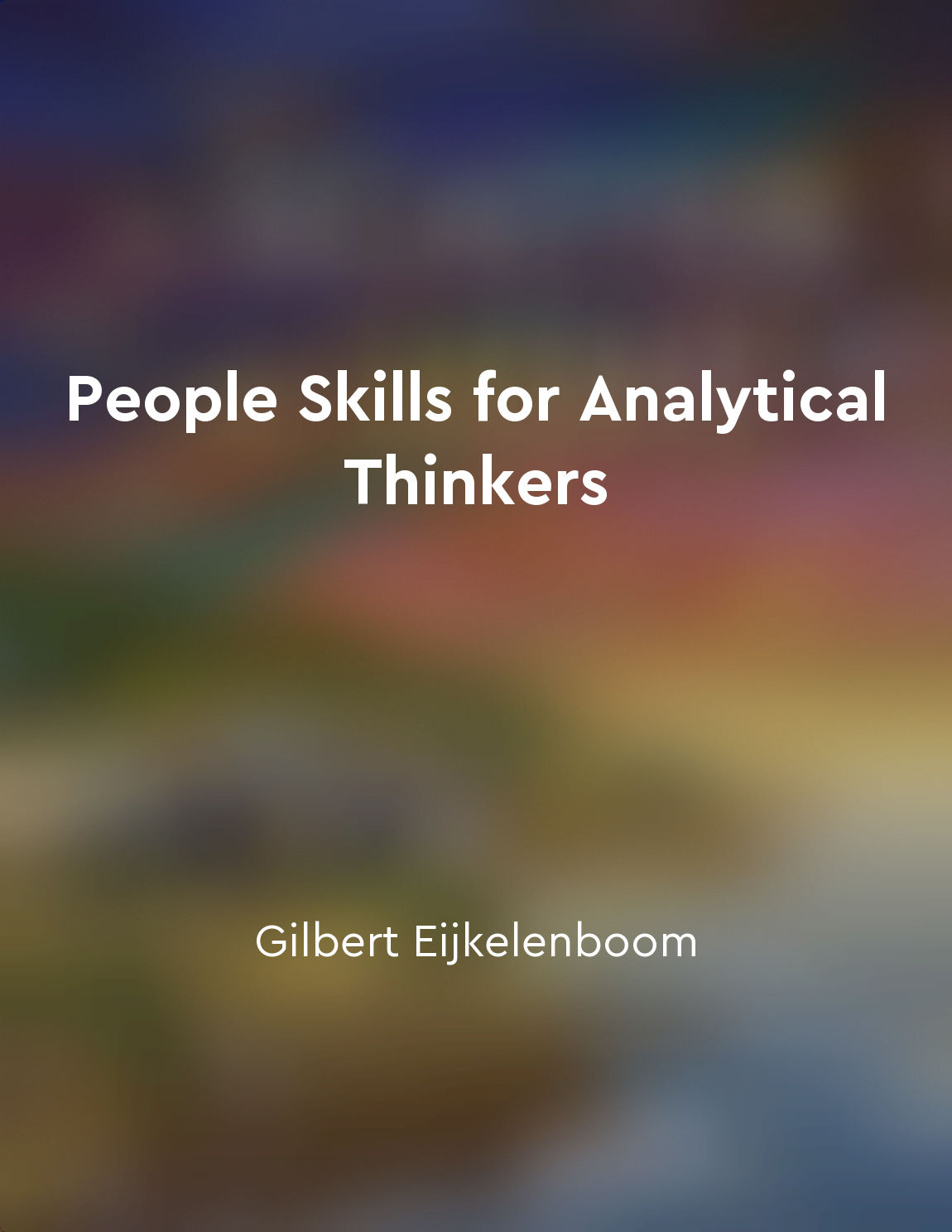Practice selfawareness and emotional regulation from "summary" of Conversational Intelligence by Judith E. Glaser
To enhance your conversational intelligence, it is crucial to focus on self-awareness and emotional regulation. Self-awareness involves being conscious of your thoughts, emotions, and behaviors in different situations. It requires reflecting on your own reactions and understanding how they impact your interactions with others. By developing self-awareness, you can identify your triggers, biases, and patterns that may influence your conversations. Emotional regulation is another key aspect of building conversational intelligence. It involves managing your emotions effectively, especially in challenging or high-stress situations. By regulating your emotions, you can prevent them from negatively impacting your conversations and relationships. This includes understanding the root causes of your emotions, learning how to express them constructively, and practicing techniques to stay calm and focused during conversations. When you practice self-awareness and emotional regulation, you can improve your ability to connect with others and build trust in your conversations. By being aware of your own emotions and reactions, you can respond more thoughtfully and empathetically to the emotions of others. This can help you create a more positive and collaborative communication dynamic, leading to more meaningful and productive conversations. Developing self-awareness and emotional regulation is an ongoing process that requires self-reflection, practice, and a willingness to learn and grow. By investing time and effort into these areas, you can enhance your conversational intelligence and become a more effective communicator. Embrace the journey of self-discovery and emotional mastery, and watch as your conversations become more engaging, authentic, and impactful.Similar Posts

Embrace paradox
Embracing paradox is a powerful concept that can help us navigate through the complexities of our times. It invites us to hold ...
Mindfulness practices can increase emotional awareness and regulation
One way to enhance our emotional intelligence is through mindfulness practices. By engaging in activities that promote mindfuln...

Active listening is a key component of effective communication
Active listening plays a crucial role in the overall process of communication. When we engage in active listening, we are not j...
Feedback is essential for improving communication skills
In the journey towards mastering effective communication, one cannot underestimate the value of feedback. Feedback serves as a ...
Cultivating curiosity promotes learning and growth in relationships
To deepen our connections with others, we must embrace the power of curiosity. When we approach relationships with a sense of w...
Creating a sense of urgency can motivate others to take action
When you want to influence others to take action, creating a sense of urgency can be a powerful tool in your persuasion arsenal...

Resilience in the face of adversity is a key trait of successful individuals
In the realm of human nature, one cannot ignore the significance of resilience when faced with adversity. It is a defining trai...
Embrace failure as a learning opportunity
Failure is often seen as something negative, a setback or a roadblock in our path to success. We tend to avoid failure at all c...

Practique el autocuidado para mantenerse equilibrado
Autocuidado significa prestar atención a nuestras propias necesidades físicas, mentales, emocionales y espirituales. Es fundame...

Keep an open mind
To truly understand the concept of keeping an open mind, one must be willing to approach ideas and perspectives without preconc...

